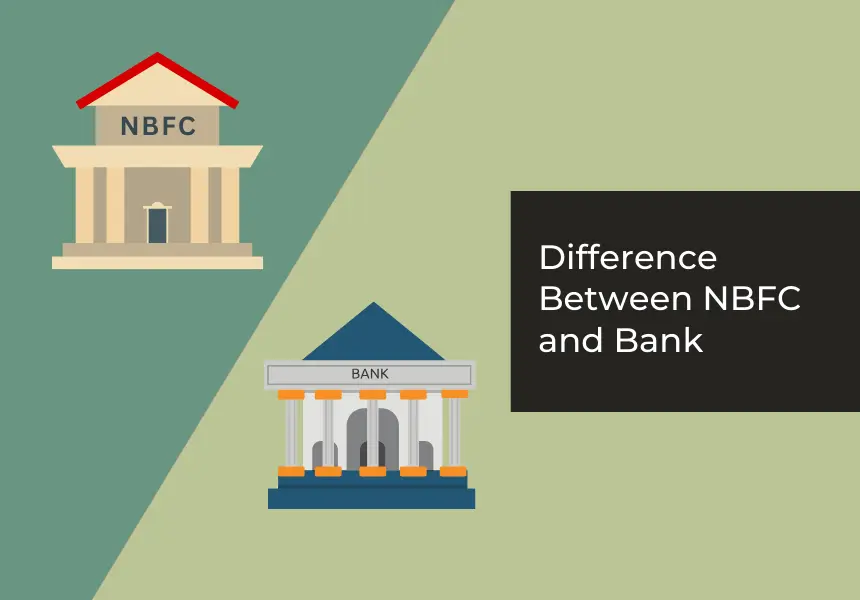
Confused about which loan to choose? You’re not alone.
With countless loan options available in India, ranging from home loans and personal loans to gold loans and business loans, knowing which one fits your needs can feel overwhelming. One wrong choice, and you could end up stuck with high interest rates, hidden charges, or repayment terms that strain your finances.
Most people jump into borrowing without fully understanding which loan type best fits their needs, whether they should opt for a secured or an unsecured loan, or how their choice today can impact their finances tomorrow.
To make it easier for you, we have listed the different types of loans in India, helping you understand which loan best fits your needs.
Different Types of Loans
Loans in India are broadly classified into two categories – Secured Loans and Unsecured Loans. Each category deals with different financial needs and risk profiles.
Secured Loans
Secured loans require an asset or collateral to ensure a safety net for the lender if the borrower fails to repay. The lender can sell the pledged asset or collateral to recover the dues. Moreover, these loans offer lower interest rates along with extended repayment terms.
Here are some common secured loan options available in India:
1. Home Loan
A home loan helps finance the purchase, construction, or renovation of a house. The property itself acts as the collateral.
2. Loan Against Property (LAP)
In this type of loan, you can pledge any residential or commercial property to secure funds. It’s often used for large expenses such as business expansion or higher education.
3. Gold Loan
For a gold loan, you are required to pledge your gold ornaments in exchange for the loan amount. The loan amount depends on the current value of the gold, and you can repay either through EMIs or by settling the interest first and the principal later.
4. Vehicle Loan
Vehicle loans are used to support financing the purchase of new or used vehicles, including two-wheelers, cars, and commercial vehicles. The vehicle itself acts as the collateral until the loan is fully repaid.
5. Loan Against Securities
This type of loan option allows you to borrow funds by pledging financial instruments, including shares, mutual funds, or bonds. Usually, the loan you get is a certain percentage of your pledged securities’ market value.
6. Working Capital Loans
Primarily offered to businesses, working capital loans help manage daily operational expenses. Businesses often pledge inventory, receivables, or other assets to avail of such loans.
Unsecured Loans
These types of loans are approved by evaluating your creditworthiness, income, and past repayments. No collateral is required, which often makes these loans quicker to process, but they come with relatively higher interest rates.
Below are the common types of unsecured loans in India:
1. Personal Loan
These are versatile loans that can be used for various personal needs such as medical emergencies, weddings, home renovations, or travel. Lenders usually assess your income and credit score before approval. Platforms like LoanTap offer personal loan solutions tailored to such requirements through a simple online process.
2. Business Loan
These loans help support business-related expenses, such as working capital, inventory purchases, or business expansion. These loans are generally offered to entrepreneurs and small businesses.
3. Education Loan
Education loans help students fund their academic expenses, including tuition fees, accommodation, and related costs. The repayment period generally begins after a moratorium period following the course completion.
4. Credit Card Loans
Many credit card companies allow users to convert outstanding dues into EMI-based loans. While convenient, these loans usually have higher interest rates.
5. Wedding Loan
A wedding loan is specifically designed to finance wedding-related expenses. These loans help fund the big events without dipping into their savings.
6. Vacation Loan
Vacation loans can be used to finance trips, covering expenses such as flights, accommodations, and other travel costs.
7. Short-Term Business Loans
These loans help businesses bridge short-term financial gaps. They’re usually easier to avail but may come with slightly higher interest rates than longer-term business loans.
Common Benefits of Loans
Loans have become a convenient way to manage various financial needs, from personal expenses to business growth. Here are some benefits of availing a loan:
- Wide Range of Options: Choose from various loan types designed for specific financial needs.
- Quick Approval and Disbursal: Enjoy faster loan approvals and quick disbursements with minimal paperwork.
- Flexible Repayment Terms: Get customisable EMIs and repayment tenures that suit your budget.
- Improves Credit Score: Making timely repayments helps enhance your credit score for future borrowing.
Things to Consider Before Applying for a Loan
Applying for a loan is a decision that stays with you for years. Here’s what you should consider to be sure it’s the right fit and easy to manage:
1. Assess Your Repayment Ability
Before borrowing, take a close look at your monthly income and expenses to ensure you borrow only what you can repay without straining your budget.
2. Choose the Right Type of Loans
Depending on your needs, whether for a home, car, education, or personal expenses, select a loan that matches your purpose. Also, compare interest rates, repayment terms, and any additional costs, such as processing fees, before making a decision.
If you’re looking for an online platform that helps simplify this process, LoanTap allows you to compare and apply for personal loans that match your requirements through a hassle-free digital process.
3. Understand the Interest Rate Structure
Interest rates can either be fixed or floating. Fixed rates offer predictable EMIs, while floating rates may change with market conditions. Make sure you understand how the interest will affect your total repayment.
4. Check Your Credit Score
Lenders require your credit score to determine your creditworthiness. A higher credit score helps secure lower interest rates and better loan options.
5. Avoid Multiple Loan Applications at Once
Every time you apply for a loan, lenders run a hard inquiry on your credit report, which can temporarily lower your credit score. Applying for too many applications in a short period may reduce your chances of approval. It’s better to compare options first, then apply selectively.
6. Evaluate Other Alternatives
Sometimes, alternatives like credit cards or borrowing from family might suit your needs better, especially for smaller amounts. Consider whether another financing option might be more suitable before committing to a long-term loan.
Summary
A loan isn’t just about borrowing money but also about making the right financial choice at the right time. Whether it’s buying a home, growing a business, or handling unexpected costs, the right loan can offer much-needed support.
But every loan comes with a responsibility. Take time to understand your options, go through the terms carefully, and borrow only what you can comfortably repay.
If you’re looking for a simpler, quicker way to borrow, you can explore LoanTap. They offer personal loans with minimal paperwork, flexible repayment options, and quick approvals, designed to keep borrowing easy and stress-free.
Frequently Asked Questions
Can I prepay my loan before the loan tenure ends?
Yes, most lenders allow prepayment, but some may charge a prepayment or foreclosure fee. Always check the terms before signing.
How does a loan EMI get calculated?
EMI is calculated based on the loan amount, interest rate, and tenure, using a standard formula. Many banks also offer EMI calculators online.
What if I miss an EMI payment?
Missing an EMI can result in penalties, negatively affect your credit score, and increase the total repayment amount.
What is the processing fee on loans?
Processing fees are charges collected by lenders to process your loan application. They usually range between 0.5% to 3% of the loan amount.
How can I check the status of my loan application?
Most lenders offer online portals or mobile applications that let you track the status of your loan application.
Are co-applicants allowed in loans?
Yes, many loans, especially home and personal loans, allow co-applicants, which may improve your chances of approval.








